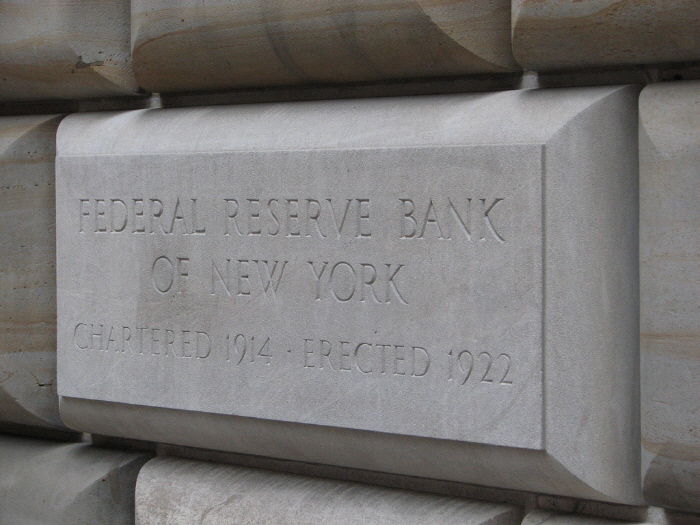A New York Fed report has shed light on exchange-related frictions that reduce the incentive of market participants to use bitcoin as a payment alternative.
Authored by Alexander Kroeger, research analyst in the Federal Reserve Bank of New York’s Research and Statistics Group, and Asani Sarkar, assistant vice president in the Federal Reserve Bank of New York’s Integrated Policy Analysis Group, the report says:
“While bitcoin transfers themselves are relatively frictionless for the user, there are significant frictions when bitcoins trade in exchange markets resulting in meaningful and persistent price differences across bitcoin exchanges”.
It states that bitcoins are “strictly homogenous”, meaning a bitcoin bought on one exchange is identical to a bitcoin bought on any other exchange and therefore should be priced uniformly. However, taking data from three major exchanges: BTC-E, Bitfinex, and Bitstamp; the report shows that bitcoins bought on BTC-E consistently trade at a lower price relative to those bought on either Bitfinex or Bitstamp.
It further adds that while in such a scenario, an arbitrageur could, theoretically, profit by buying bitcoin on BTC-E and then selling it on either Bitstamp or Bitfinex, in reality this trade would entail both transaction costs and/or risk.
The fees charged by the exchanges for transactions, withdrawals and deposits of traditional currency reduce the profits from arbitrage, and may lead to the price differences. In addition, the risk factor arising from price changes due to delays in executing transactions and counterparty risk from exchange failure or fraud, can shrink or even revert before an arbitrageur can exploit it.
The report concluded saying:
“Since bitcoin does not serve as a unit of account, most users need to convert bitcoin back and forth with traditional currency on exchanges, subjecting them to “microstructure” frictions and inter-exchange price uncertainty. This price uncertainty, in turn, inhibits the use of bitcoin as a store of value. Thus, while bitcoin may continue to develop as an alternative means of payment, it competes with more traditional value-transfer methods on a familiar playing field—offering transfers with lower fees relative to transaction risk.”
New York Fed Report Discusses Frictions In Bitcoin Trading

Monday, March 28, 2016 4:49 AM UTC
Editor's Picks
- Market Data
Most Popular



 FxWirePro- Major Crypto levels and bias summary
FxWirePro- Major Crypto levels and bias summary  FxWirePro- Major Crypto levels and bias summary
FxWirePro- Major Crypto levels and bias summary 































